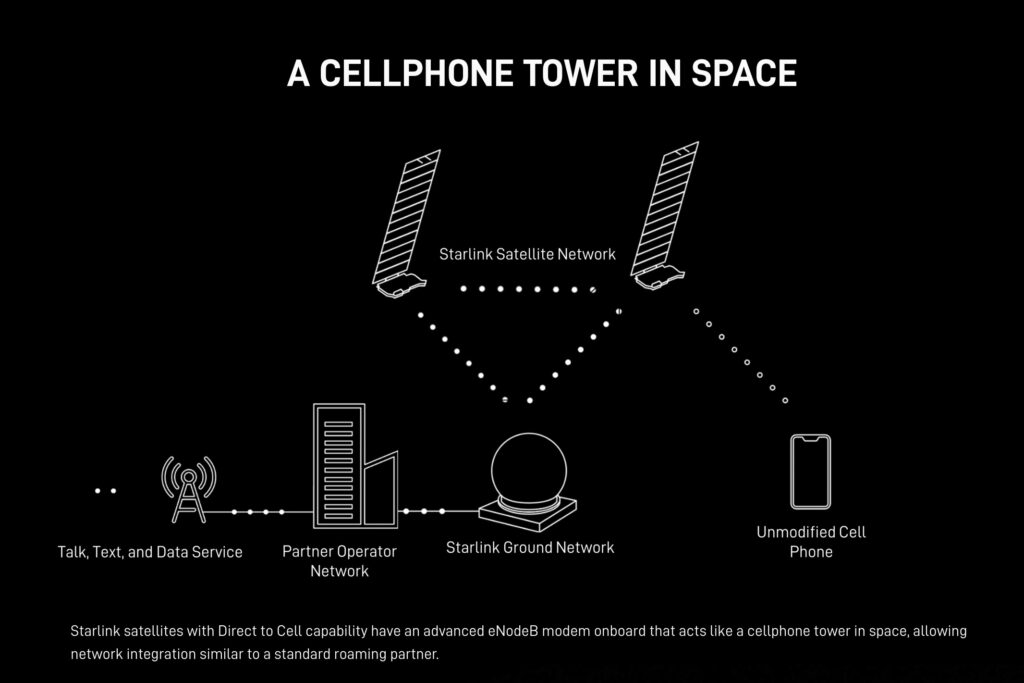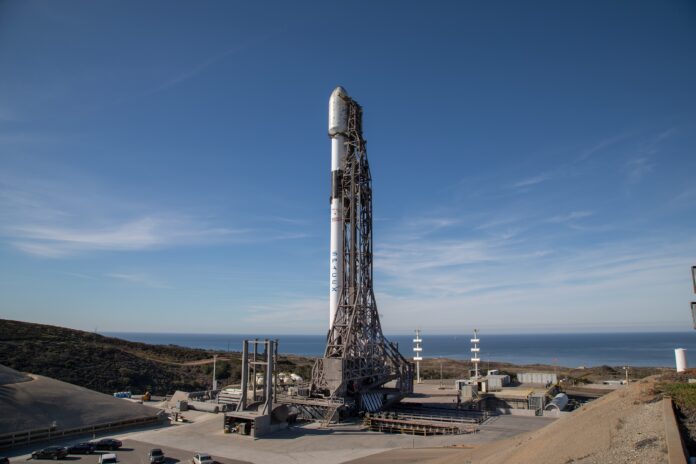Switzerland’s Salt was the first in Europe to sign up for Starlink services to provide coverage in hard to reach areas
SpaceX has launched the first six low-orbit Starlink satellites with direct-to-cell (mobile) capabilities. Starlink describes the satellites as “a cellphone tower in space” – see schematic below. The full constellation will comprise 21 satellites.

Those that have been launched will now undergo ground-level tests carried out in the US. The satellite services are meant to complement terrestrial mobile networks, providing coverage where there is none, including over the oceans, and for use in emergencies and for back-up in the event of power failures.
In March 2023, Swiss network operator Salt was the first in Europe to announce an agreement to use SpaceX to provide ubiquitous satellite-based coverage in hard to reach areas of the famously mountainous country.
Salt expects to begin commercial services for text messages in late 2024 for ordinary 4G phones with voice and data capabilities scheduled to follow in 2025. Starlink will also offer service for IoT next year.
Partnerships in place
SpaceX has similar agreements in place with T-Mobile in the US, Optus in Australia, Rogers in Canada, One NZ in New Zealand, KDDI in Japan, and Entel in Chile and Peru. Earlier this week Indian operator Vodafone Idea (Vi) denied rumours that it was mulling a tie-up with Starlink. The satellite company has applied for an operating licence in India.
Max Nunziata, CEO at Salt,comments: “Today marks a significant milestone as …This pioneering technology sets the stage for telecommunication operators to deliver a seamless network experience to their customers, transcending geographical boundaries and ensuring connectivity wherever they may be.”
Learn more at direct.starlink.com.



